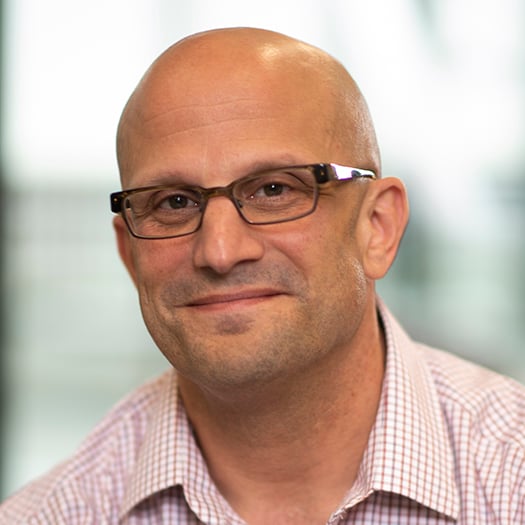Children's Expert Finds That Bariatric Surgery Works For Obese Patients With Rare Genetic Deficiency

Washington, DC – Researchers at Children’s National Health System and Abu Dhabi’s Imperial College of London Diabetes Centre found that bariatric surgery can be successful in children who have a rare genetic deficiency called homozygous MC4R deficiency, that makes them prone to obesity. Prior to this point, many healthcare professionals believe obese children with this deficiency would not benefit from surgery.
Evan P. Nadler, MD, Co-Director of the Obesity Institute and Director of the Bariatric Surgery Program at Children’s National, and Principal Investigator at the Sheikh Zayed Institute for Pediatric Surgical Innovation, Nader Lessan, MD, of the Imperial College of London Diabetes Centre (ICLDC), the region’s leading specialist centre for the treatment, management, research, and education of diabetes and endocrinology based in Abu Dhabi which forms a part of the Emirate’s development company, Mubadala’s network of world-class healthcare providers, and other colleagues write that the small study of four children (three from the United Arab Emirates and one from Kuwait), showed that patients with this genetic condition experienced significant weight loss and overall health improvement following bariatric surgery. Their study was published in the International Journal of Obesity.
Two of the patients, ages four and eight, had their surgery at Children’s National, while the others had surgery in the UAE, and were subsequently cared for at Imperial College London Diabetes Centre. The surgery, known as vertical sleeve gastrostomy (VSG) permanently reduces the size of the stomach by 80 percent or more.The 4-year-old is believed to be the youngest person in the United States to undergo bariatric surgery.
The surgery also demonstrated a successful multidisciplinary team effort in the coordination and examination of the issue, in a partnership with Children’s National and the Abu Dhabi facility, whose physicians plan on jointly caring for the 4-year-old.
“I think this provides a glimmer of hope for patients who not only have this particular genetic defect, but other diseases,” says Dr. Nadler. “It opens the door for treatment options that we can explore, and something we can do for these kids. In general, as with any chronic disease, the earlier you treat it, the better the patient’s long-term outcome.”
A portion of the study focused on the patients’ loss of the MC4R function, which has been implicated in at least 5 percent of adolescents with obesity. Although many experts believe bariatric weight loss surgery doesn’t work with this condition, Dr. Nadler’s study found it was successful at least in the short term. While the research sample of 4 patients appears relatively small, it has a wider impact because of the rareness of the disorder and number of cases, according to Drs. Nadler and Lessan. This study marked the first time for this particular surgical treatment of patients with this type of mutation.
“This research is important because it will help patients of all ages make a more informed choice about having bariatric surgery, which is a major undertaking-both physically and financially,” adds Dr. Lessan.
Three of the four children, who, prior to surgery, were profoundly obese with a series of ailments related to the disease, have made significant weight loss and overall health improvements. The 8-year-old was over 350 pounds, and so debilitated she was wheelchair bound; the 4-year-old weighed over 150 pounds, was withdrawn and inactive.
Before the surgery, “the 4-year-old already had signs of diabetes, and if we waited and did not intervene, she may have been in the situation of the 8-year-old,” says Dr. Nadler. “I wasn’t willing to watch the 4-year-old go through the same evolution.”
The surgeries offer a potentially bright future for their health. The older child no longer needs a wheelchair to move around, and the 4-year-old is “basically a completely different person, being very active. This surgery was just transformational,” Dr. Nadler adds.
For the children and other patients, the surgery itself may not be final solution to their weight issues, because weight control and behavioral maintenance will be necessary in the years ahead, he says.
Dr. Nadler says he expects that longer-term data, on larger populations, is needed before “we draw major conclusions.”
Contact: Leah Parker at 202-476-4500
About Imperial College London Diabetes Centre
Imperial College London Diabetes Centre is a one-stop, state-of-the-art, out-patient facility that specialises in diabetes treatment, research, training and public health awareness. The Centre was established in Abu Dhabi by Mubadala Healthcare, in partnership with the UK’s Imperial College London, in 2006 to address the growing demand for diabetes care in the UAE. A second facility in Al Ain opened in 2011. Together, the Centres have offered diabetes prevention, education and treatment to more than to more than 800,000 patient contacts. ‘Diabetes-Knowledge-Action’ is Imperial College London Diabetes Centre’s award-winning public health awareness campaign. It was launched in 2007 under the patronage of Her Highness Sheikha Fatima bint Mubarak. Imperial College London Diabetes Centre holds the Joint Commission International (JCI) Clinical Care Program Certification (CCPC) in Diabetes Management and JCI Accreditation for Ambulatory Care, awarded in 2010 and again in 2013. The 2010 award made Imperial College London Diabetes Centre the only healthcare provider worldwide to hold both certifications and the first facility in the Middle East and third globally to hold JCI’s highly-acclaimed CCPC specifically for the clinical management of diabetes. For more information log on to www.icldc.ae



